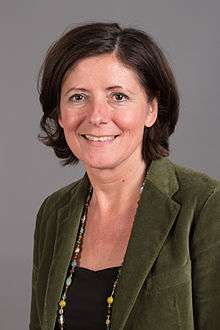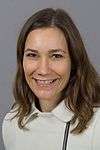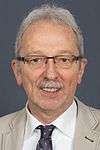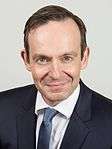2021 Rhineland-Palatinate state election
The 2021 Rhineland-Palatinate state election will be held on 14 March 2021 to elect the members of the 18th Landtag of Rhineland-Palatinate. [1] The incumbent government of a coalition of the Social Democratic Party (SPD), Free Democratic Party (FDP), and The Greens led by Minister-President Malu Dreyer.
| ||||||||||||||||||||||||||||||||||||||||
All 101 seats in the Landtag of Rhineland-Palatinate (plus overhang and leveling seats) 51+ seats needed for a majority | ||||||||||||||||||||||||||||||||||||||||
|---|---|---|---|---|---|---|---|---|---|---|---|---|---|---|---|---|---|---|---|---|---|---|---|---|---|---|---|---|---|---|---|---|---|---|---|---|---|---|---|---|
| ||||||||||||||||||||||||||||||||||||||||
| ||||||||||||||||||||||||||||||||||||||||
Election date
The period of the 17th Landtag began on 18 April 2016. Landtag elections may take place between 57 and 60 months after the commencement of the term of the previous Landtag; thus, the election may take place between February and May 2021.[2] On 11 February 2020, the state government announced the date of the election as 14 March 2021.[1]
Electoral system
The Landtag is elected via mixed-member proportional representation. 52 members are elected in single-member constituencies via first-past-the-post voting. 51 members are then allocated using compensatory proportional representation. Voters have two votes: the "first vote" for candidates in single-member constituencies, and the "second vote" for party lists, which are used to fill the proportional seats. The minimum size of the Landtag is 101 members, but if overhang seats are present, proportional leveling seats will be added to ensure proportionality. An electoral threshold of 5% of valid votes is applied to the Landtag; parties that fall below this threshold are excluded.[3]
Background
In the previous election held on 13 March 2016, the SPD retained its position as the largest party ahead of the Christian Democratic Union (CDU). Alternative for Germany (AfD) contested its first election in Rhineland-Palatinate, placing third with 12.6%. The FDP returned to the Landtag after falling out in 2011, winning 6.2% and 7 seats. The Greens narrowly retained their representation with 5.3%, a loss of 10.1 percentage points.
The SPD had led a coalition with the Greens since 2011, but this government lost its majority in the election. The Greens subsequently formed a coalition with the FDP and Greens.
Campaign
Lead candidates
On 18 October 2019, the state executive of The Greens nominated Anne Spiegel, Minister for Family, Women, Youth, Integration and Consumer Protection, as the party's lead candidate for the election.[4]
On 16 November 2019, leader of the CDU parliamentary group Christian Baldauf was selected as his party's lead candidate for the election.[5] He won 80.25% of votes against challenger Marlon Bröhr, administrator of the Rhein-Hunsrück district.[6]
On 2 December 2019, Minister-President Malu Dreyer announced her withdrawal from the federal executive of the SPD in order to focus on state politics and the upcoming state election. She had served as co-deputy leader of the federal party since 2017, and was joint acting leader from June to December 2019 after the resignation of leader Andrea Nahles. The announcement came after the 2019 leadership election which saw Saskia Esken and Norbert Walter-Borjans chosen as Nahles' successors. Rhineland-Palatinate state party leader Roger Lewentz stated: "[Dreyer] is the best Minister-President for Rhineland-Palatinate. In the coming year we will do everything we can to ensure that she can continue to hold her post even after the state election in 2021."[7]
Parties
The table below lists parties currently represented in the 17th Landtag of Rhineland-Palatinate.
| Name | Ideology | Lead candidate |
Leader(s) | 2016 result | |||
|---|---|---|---|---|---|---|---|
| Votes (%) | Seats | ||||||
| SPD | Social Democratic Party of Germany Sozialdemokratische Partei Deutschlands |
Social democracy | Malu Dreyer | Roger Lewentz | 36.2% | 39 / 101 | |
| CDU | Christian Democratic Union of Germany Christlich Demokratische Union Deutschlands |
Christian democracy | Christian Baldauf | Julia Klöckner | 31.8% | 35 / 101 | |
| AfD | Alternative for Germany Alternative für Deutschland |
National conservatism | Michael Frisch | 12.6% | 14 / 101 | ||
| FDP | Free Democratic Party Freie Demokratische Partei |
Classical liberalism | Volker Wissing | 6.2% | 7 / 101 | ||
| Grüne | Alliance 90/The Greens Bündnis 90/Die Grünen |
Green politics | Anne Spiegel | Misbah Khan Josef Winkler |
5.3% | 6 / 101 | |
Volt Europa is planning to run in the election as well but needs to collect a sufficient amount of signatures to do so.[8]
Opinion polling
Party polling
| Polling firm | Fieldwork date | Sample size |
SPD | CDU | AfD | FDP | Grüne | Linke | Others | Lead |
|---|---|---|---|---|---|---|---|---|---|---|
| Infratest dimap | 20–21 Apr 2020 | 1,003 | 27 | 38 | 8 | 6 | 13 | 4 | 4 | 11 |
| INSA | 16–30 Mar 2020 | 1,045 | 24 | 30 | 12 | 5 | 19 | 5 | 5 | 6 |
| Infratest dimap | 27 Feb–3 Mar 2020 | 1,001 | 26 | 27 | 11 | 7 | 18 | 6 | 5 | 1 |
| Infratest dimap | 5–10 Dec 2019 | 1,002 | 26 | 30 | 13 | 7 | 16 | 4 | 4 | 4 |
| INSA | 9–16 Sep 2019 | 1,012 | 22 | 28 | 12 | 8 | 20 | 4 | 6 | 6 |
| Infratest dimap | 5–9 Sep 2019 | 1,001 | 23 | 28 | 11 | 8 | 21 | 4 | 5 | 5 |
| Infratest dimap | 14–18 Mar 2019 | 1,000 | 24 | 31 | 11 | 10 | 14 | 6 | 4 | 7 |
| Forsa | 1–8 Feb 2019 | 1,005 | 26 | 31 | 10 | 8 | 14 | 5 | 6 | 5 |
| Infratest dimap | 10–11 Dec 2018 | 1,001 | 24 | 31 | 13 | 7 | 16 | 4 | 5 | 7 |
| Infratest dimap | 11–15 Oct 2018 | 1,003 | 24 | 28 | 13 | 8 | 18 | 5 | 4 | 4 |
| Infratest dimap | 14–18 Jun 2018 | 1,004 | 29 | 31 | 13 | 7 | 11 | 5 | 4 | 2 |
| Infratest dimap | 5–7 Mar 2018 | 1,001 | 37 | 33 | 8 | 7 | 8 | 3 | 4 | 4 |
| INSA | 2–8 Jan 2018 | 1,517 | 33 | 34 | 10 | 7 | 7 | 5 | 4 | 1 |
| Infratest dimap | 8–12 Dec 2017 | 1,003 | 38 | 37 | 6 | 7 | 6 | 3 | 3 | 1 |
| Infratest dimap | 7–11 Sep 2017 | 1,001 | 36 | 36 | 8 | 6 | 6 | 4 | 4 | Tie |
| GESS Phone & Field | 6–17 Jul 2017 | 1,002 | 33 | 37 | 8 | 7 | 6 | 3 | 6 | 4 |
| Infratest dimap | 14–19 Jun 2017 | 1,000 | 32 | 37 | 8 | 7 | 7 | 5 | 4 | 5 |
| Infratest dimap | 2–6 Mar 2017 | 1,001 | 40 | 35 | 7 | 6 | 6 | 3 | 3 | 5 |
| GESS Phone & Field | 9–19 Dec 2016 | 1,002 | 34 | 36 | 11 | 5 | 5 | 3 | 6 | 2 |
| Infratest dimap | 8–12 Dec 2016 | 1,000 | 32 | 36 | 10 | 9 | 5 | 4 | 4 | 4 |
| Infratest dimap | 8–12 Jul 2016 | 1,004 | 33 | 33 | 10 | 7 | 8 | 4 | 5 | Tie |
| GESS Phone & Field | 13–20 Jun 2016 | 1,004 | 36 | 31 | 12 | 6 | 6 | 3 | 6 | 5 |
| 2016 state election | 13 Mar 2016 | – | 36.2 | 31.8 | 12.6 | 6.2 | 5.3 | 2.8 | 5.0 | 4.4 |
Minister-President polling
| Polling firm | Fieldwork date | Sample size |
 |
 |
 |
 |
None/Unsure | Lead |
|---|---|---|---|---|---|---|---|---|
| Malu Dreyer SPD |
Julia Klöckner CDU |
Christian Baldauf CDU |
Anne Spiegel Grüne | |||||
| Infratest dimap | 27 Feb–3 Mar 2020 | 1,001 | 57 | – | 17 | 4 | 11 | 40 |
| Infratest dimap | 5–7 Mar 2018 | 1,001 | 56 | 31 | – | – | 5 | 25 |
| Infratest dimap | 8–12 Dec 2017 | 1,003 | 56 | 30 | – | – | 6 | 26 |
| Infratest dimap | 14–19 Jun 2017 | 1,000 | 50 | 31 | – | – | 9 | 19 |
| Infratest dimap | 2–6 Mar 2017 | 1,001 | 52 | 34 | – | – | 6 | 18 |
Notes
- Party leader, not lead candidate.
- Party leader, not lead candidate.
References
- "Mainz Termin für Landtagswahl festgelegt". Südwestrundfunk. 11 February 2020.
- "Wahltermin/Terminkalender". Rheinland-Pfalz Landeswahlleiter.
- "Das Wahlsystem" (PDF). Rheinland-Pfalz Landeswahlleiter. 20 April 2020.
- "Landtagswahl 2021 Grüne nominieren Anne Spiegel als Spitzenkandidatin". Südwestrundfunk. 18 October 2019.
- "Liveticker: Wer wird CDU-Spitzenkandidat 2021 in Rheinland-Pfalz?". Volksfreund.de. 16 November 2019.
- "Landtagswahlen in Rheinland-Pfalz im Jahr 2021 Will Hunsrück-Landrat Bröhr CDU-Spitzenkandidat werden?". Südwestrundfunk. 29 October 2019.
- "Malu Dreyer (SPD) konzentriert sich auf Rheinland-Pfalz und Wahl 2021". Volksfreund.de. 2 December 2019.
- https://twitter.com/TobiasSchminke/status/1275896319643734027

